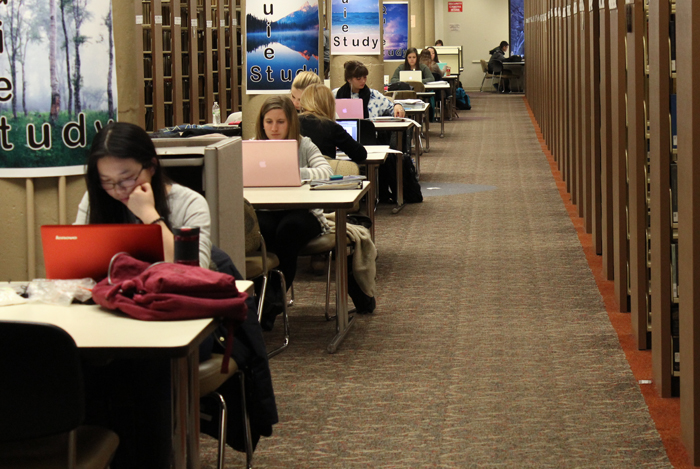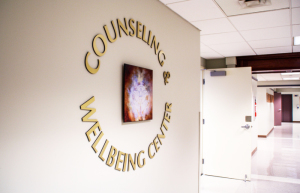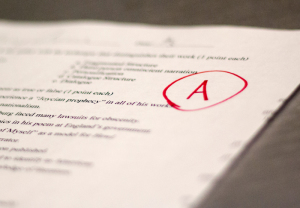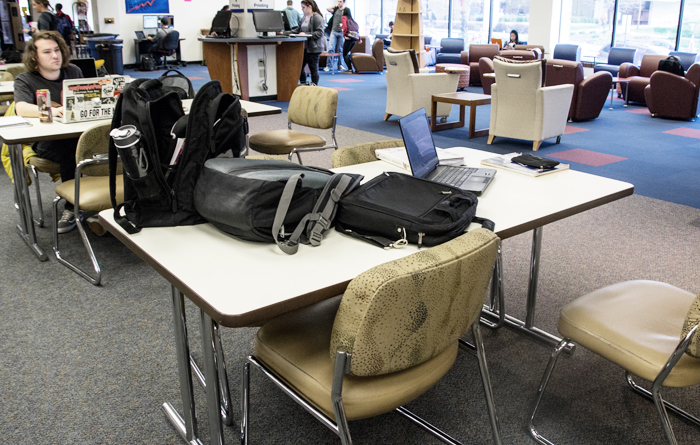

By: Seth Culp-Ressler | Asst. Features Editor
With classes coming to a close and exams fast approaching, stress and anxiety are beginning to take hold of many a Duquesne student. While this time of the term is undoubtedly one of the most difficult for a vast majority of students, the negative effects can certainly be lessened with some mindful studying, efficient use of resources and prioritized preparedness.
Samantha Pringle, Mental Health case manager at the Counseling and Wellbeing Center on campus, said that during finals there is a noticeable increase in students coming in for the Center’s services. One of the most common and understandable reasons for the uptick is related to increased anxiety.
“[Students’] anxiety gets to them, they become anxious,” Pringle explained. “We have a lot of panic attacks that happen — especially students that normally would not have panic attacks — and then they don’t know what’s happening to them, so they’re coming here.”
Another reason students are in need of help during finals, according to Pringle, comes from issues related to depression. She said that often the pressure associated with doing well in a course can get to students, especially when passing a class is up in the air. This often leads to some degree of apathy and hopelessness.
Sophomore Spanish and International Relations major Joe Caraway said that finals are really just a necessary evil. What makes them so stressful, though, is the sheer amount of work there is to be done.
“You can’t not have finals,” Caraway said. “You can’t just have the class end. It’s like they need to be there, it’s just the fact that they’re all so close to one another and that if you’re taking any hard classes, or a few hard classes which even makes it worse, you’re just even more screwed.”
The heavy workload often means procrastination rears its ugly head and long nights are usually in the cards. No place knows that fact better than Gumberg Library. Kelley Cotter, Marketing and Electronic Communications Librarian at Gumberg, said that in order to accommodate the frantic studying habits of students, 24/7 hours are enacted for the time surrounding finals. Cottter said that the increased amounts of patrons, as well as the high tensions, are quite noticeable as soon as one strolls through the doors.
“When you walk in the building you can feel that there’s a lot of people,” Cotter said. “You can also feel the stress. When you look around there’s a lot of people that just look like they’re in their zone, and they’re trying to get through the home stretch of the semester.”

The pressure-filled environment isn’t helped by the fact that Gumberg doesn’t have the capacity to accommodate all students, all the time. Cotter said that even with the extra chairs and tables put out for finals there are only about 1,200 seats available, enough for only around 10 percent of the student population.
“When you’re one of those students that’s roaming around the library and not able to find a space to sit, not because there isn’t a table, but because it’s being sort of ‘claimed’ by someone else that is not currently occupying the table but has belongings there, it can be really frustrating,” Cotter explained.
This year, the library staff is trying to promote equal and efficient sharing of the library space, with the goal of reducing students’ worries. They hope students will be mindful about circulating the tables and chairs around the library space, so that everyone has a chance to utilize Gumberg’s resources.
The library staff further helps to relieve the stress finals create by offering increased assistance to students in need. As Cotter explained, a 24/7 reference chat service is in place to help those unfortunate souls with papers or projects in addition to any exams.
“Anyone who has a paper to write, on top of studying for three different exams, we make ourselves available to relieve some of the stress and make people’s lives easier in helping find sources, or citing sources, or evaluating things,” she said.
Kaitlyn Clem, a sophomore English major, pointed out that it’s this combination of projects on top of exams on top of essays that really makes finals week a crunch. For her it’s always tough to find the right balance between all of the required obligations.
“The hardest part about finals is having all of this work competing to be due around the same time, and trying to prioritize what needs to come first,” Clem said. “Trying to deal with having to put some stuff aside and put some order of importance on the assignments when they’re all really important.”
Pringle pointed out that prioritization is a technique that the Counseling and Wellbeing Center really tries to encou

rage students to use. She said that having a structured schedule can help to prevent any last minute cramming. Such rushed tactics can backfire heavily, with one’s ability to focus greatly diminished due to anxiety.
“Most students don’t even realize how anxious and how much anxiety they do have whenever they’re studying, because that’s the norm. You cram, you study, you freak out in a sense — that’s the normal habit for a college student,” Pringle said.
Echoing an oft-repeated mantra, Pringle emphasized the importance of regular sleep and regular eating as integral aspects of exam success. On top of that, utilize breaks when studying; don’t try to do marathon sessions. As she said, however, don’t take that as meaning flip on the television or turn to a phone.
“What students don’t realize is that they’re still using the energy from their eyesight and their brain to focus on TV or to focus on the phone, and they’re still exerting all that energy. So when they go back to studying it’s not even like they took a break,” Pringle said.
Her advice was to engage in activities that will truly give yourself some relaxation. Take a walk, close your eyes for a while, listen to music. More than anything, though, take care of yourself.
“We really want students to put their wellbeing as number one,” she said, “And to not decrease eating, not decrease sleep, not decrease hygiene, even though they have to study for these finals. Because taking care of yourself is the number one priority in order to get you through it.”



